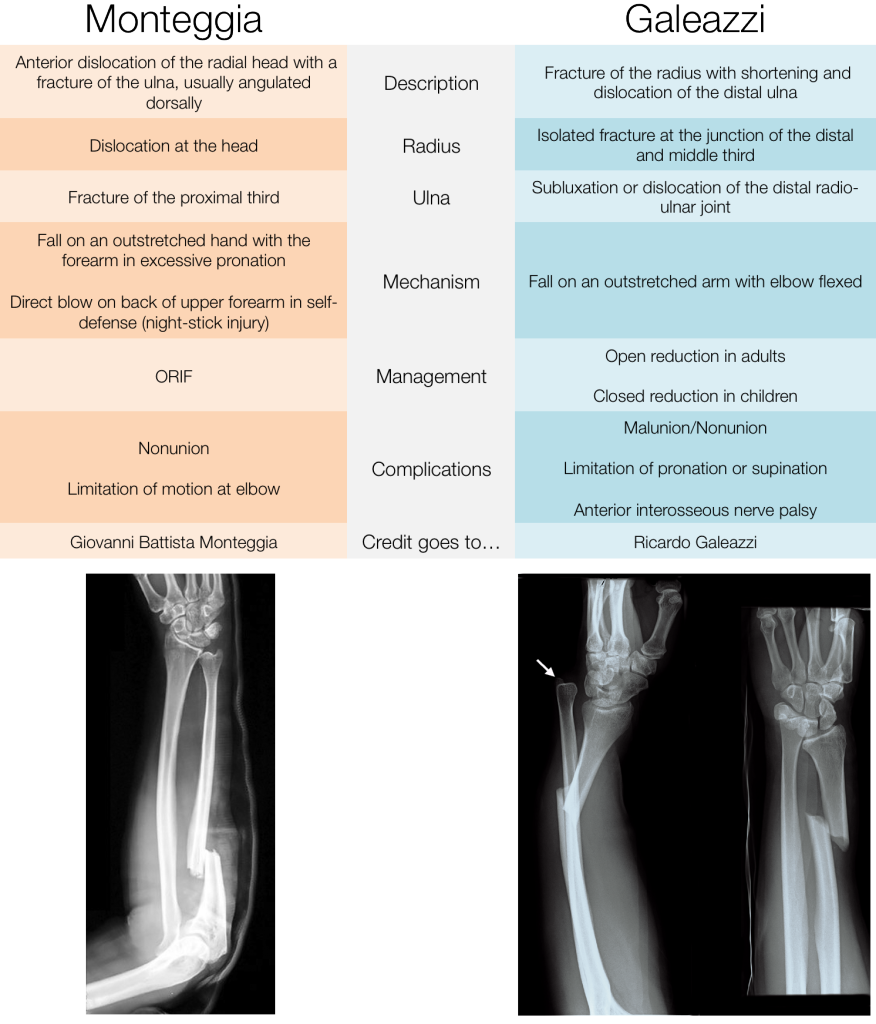Seriously, I can never manage to remember the differences between Monteggia and Galeazzi fractures – especially when it shows up on standardized tests. So, this edition of Fracture Fridays focuses on differentiating the two. Essentially, when one forearm bone breaks and is displaced, angulated and foreshortened something happens to the other one – usually a fracture – but sometimes a dislocation. These are much more common in adults, since pediatric bones have greater plasticity, and often break at the physis. The simple mnemonic I came across states that Monteggia is fracture of ulna. Therefore, Galeazzi is fracture of radius. See, not so great. I’m not a mnemonic guy myself, so I made this handy table.
Fracture Fridays: Monteggiazzi (Re-post)
About the Author: Brad Sobolewski, MD, MEd
Brad Sobolewski, MD, MEd is a Professor of Pediatric Emergency Medicine and the Associate Director of Physician and Team-Based Education at Cincinnati Children's Hospital Medical Center. He is on Twitter/X @PEMTweets, on Instagram @BradSobolewski, authors the Pediatric Emergency Medicine site PEMBlog and is the host and creator of PEM Currents: The Pediatric Emergency Medicine Podcast. All views are strictly my own and not official medical advice.
Related Posts
One Comment
Comments are closed.










The memory aid I use for this one is ‘FUME’ = ‘F’racture of the ‘U’lna is ‘M’onteggia with the other bone (radius) dislocated at the ‘E’lbow
Galeazzi then is just the opposite – ie . F’racture of the radius is galeazzi with the other bone (Ulna) dislocated at the wrist.
Cheers
-Cory